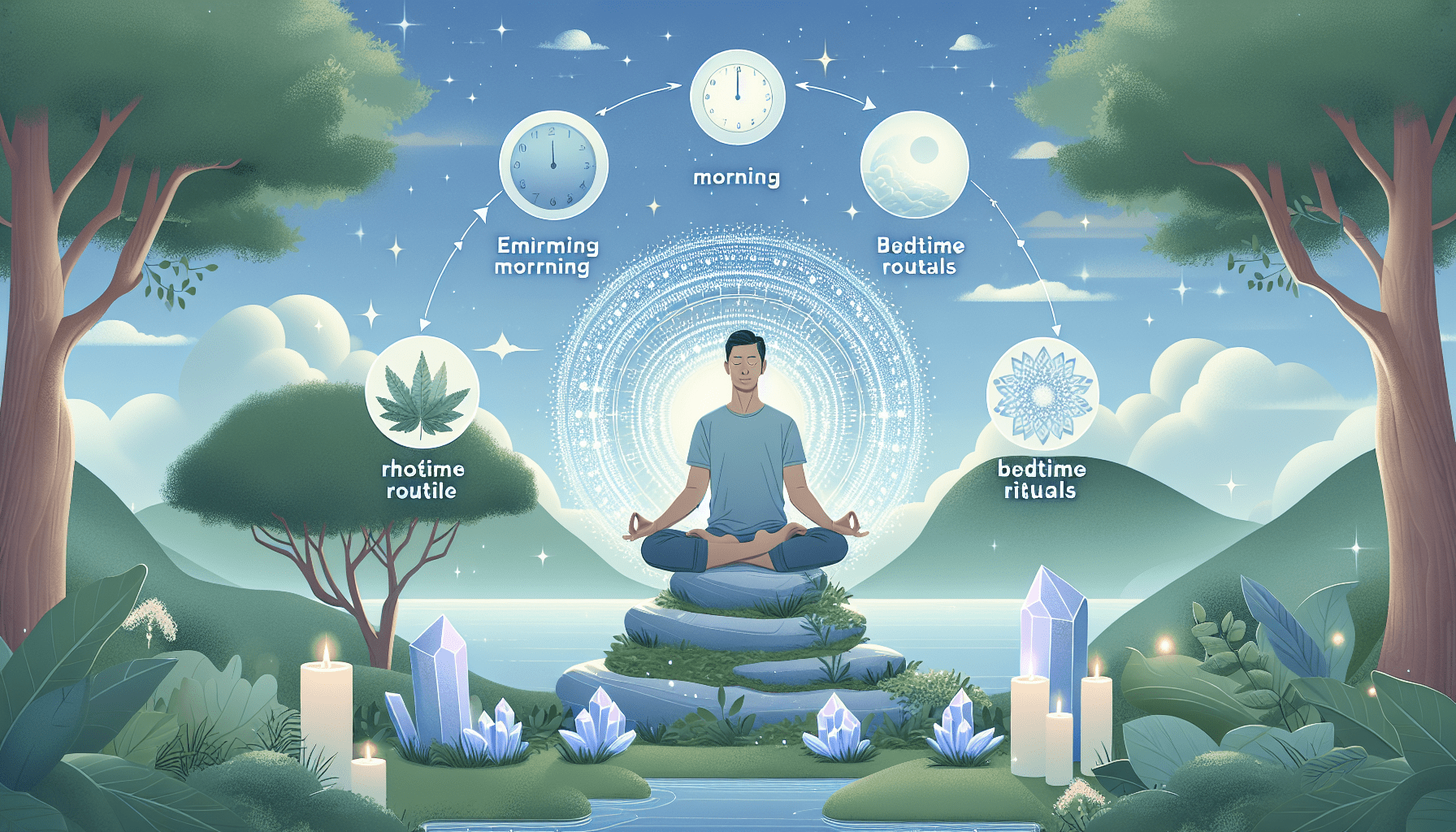Holistic Mindfulness: What Is It?
Holistic mindfulness is a practice that involves being present and fully engaged in the moment. It goes beyond traditional mindfulness practices by incorporating all aspects of your being – mind, body, and spirit. This means paying attention to not only your thoughts and emotions but also your physical sensations and surroundings.
How can you practice holistic mindfulness in your everyday activities?
You can practice holistic mindfulness in your everyday activities by being fully present in whatever you are doing. This means focusing on the task at hand without judgment or distraction. Whether you are eating, walking, or even washing dishes, you can bring mindfulness to the moment by paying attention to your senses and being aware of your thoughts and emotions.

Benefits of Holistic Mindfulness
Practicing holistic mindfulness in your everyday activities can have a wide range of benefits for your overall well-being. Some of these benefits include reducing stress, improving focus and concentration, enhancing self-awareness, and promoting a sense of peace and calm.
How can holistic mindfulness help reduce stress?
When you practice holistic mindfulness, you are better able to manage stress by bringing your attention to the present moment. This helps you shift your focus away from negative thoughts and worries, allowing you to experience a sense of peace and relaxation. By being fully present and engaged in the moment, you can let go of stress and tension in your body and mind.
How does holistic mindfulness improve focus and concentration?
Holistic mindfulness involves training your mind to be fully present in whatever you are doing. This can help improve your focus and concentration by reducing distractions and increasing your awareness of the task at hand. By focusing on the present moment, you can enhance your ability to concentrate and stay engaged in your activities.
How can holistic mindfulness enhance self-awareness?
By practicing holistic mindfulness, you can become more aware of your thoughts, emotions, and physical sensations. This increased self-awareness can help you better understand yourself and your reactions to different situations. By being present and mindful in your everyday activities, you can develop a deeper sense of self-awareness and self-acceptance.
How does holistic mindfulness promote a sense of peace and calm?
When you practice holistic mindfulness, you are able to experience a deep sense of peace and calm by being fully present in the moment. This can help you let go of worries about the past or future and focus on the present moment instead. By cultivating a sense of inner peace through mindfulness, you can experience a greater sense of calm and well-being in your everyday life.
Practical Tips for Practicing Holistic Mindfulness
There are many ways you can incorporate holistic mindfulness into your everyday activities. Here are some practical tips to help you cultivate mindfulness in your daily life:
| Practice | Description |
|---|---|
| Mindful Breathing | Pay attention to your breath as you inhale and exhale, focusing on the sensations of each breath. |
| Body Scan Meditation | Focus on different areas of your body, starting from your head and moving down to your toes, noticing any tension or discomfort. |
| Mindful Eating | Slow down and savor each bite of your food, paying attention to the flavors, textures, and sensations in your mouth. |
| Nature Walks | Take a walk in nature and pay attention to the sights, sounds, and smells around you, connecting with the natural world. |
| Gratitude Practice | Reflect on things you are grateful for each day, cultivating a sense of appreciation and abundance in your life. |
| Mindful Journaling | Write down your thoughts and emotions in a journal, allowing yourself to reflect on your experiences and gain insight into your inner world. |
How can you incorporate these practices into your daily routine?
You can start by choosing one or two practices that resonate with you and commit to incorporating them into your daily routine. Whether you do a short breathing exercise in the morning, practice mindful eating during meals, or take a nature walk in the afternoon, find ways to make holistic mindfulness a regular part of your day.

Overcoming Challenges in Practicing Holistic Mindfulness
While practicing holistic mindfulness can offer many benefits, it is not always easy to stay present and mindful in the midst of our busy lives. Here are some common challenges you may encounter and tips for overcoming them:
Challenge: Distractions and Overthinking
It can be challenging to stay focused and present when faced with distractions and overthinking. You may find your mind wandering to the past or future, making it difficult to stay fully engaged in the present moment.
Tip: Practice gentle redirection
When you notice your mind wandering or getting caught up in overthinking, gently redirect your attention back to the present moment. You can do this by focusing on your breath, sensations in your body, or the task at hand. By gently guiding your mind back to the present, you can cultivate greater mindfulness and awareness.
Challenge: Time Constraints and Busyness
In our fast-paced world, it can be difficult to find time for mindfulness practices amid our busy schedules and commitments. You may feel overwhelmed by the demands of everyday life, making it challenging to prioritize self-care and mindfulness.
Tip: Start small and be consistent
Instead of feeling overwhelmed by the idea of incorporating mindfulness into your daily routine, start small and commit to practicing for just a few minutes each day. You can gradually increase the amount of time you spend on mindfulness practices as you build a consistent habit. By starting small and being consistent, you can make mindfulness a more manageable and sustainable part of your daily life.
Challenge: Resistance and Self-Judgment
You may encounter resistance or self-judgment when practicing holistic mindfulness, especially if you struggle with negative thoughts or emotions. You may feel critical of yourself for not being able to stay present or for experiencing difficulties in your practice.
Tip: Cultivate self-compassion
Instead of being hard on yourself for any perceived shortcomings in your mindfulness practice, cultivate self-compassion and kindness. Treat yourself with the same care and understanding that you would offer to a loved one facing challenges. By practicing self-compassion, you can develop a more loving and accepting relationship with yourself, allowing you to approach mindfulness with openness and curiosity.
Integrating Holistic Mindfulness Into Your Daily Life
To truly benefit from holistic mindfulness, it is important to integrate it into your daily life in a way that feels authentic and sustainable. By making mindfulness a regular part of your routine, you can experience greater awareness, peace, and well-being in all aspects of your life.
How can you integrate holistic mindfulness into your daily life?
You can integrate holistic mindfulness into your daily life by incorporating mindfulness practices into your existing routines and activities. Whether you practice mindful breathing in the morning, take short mindfulness breaks throughout the day, or engage in a mindfulness meditation before bed, find ways to weave mindfulness into your daily schedule.
How can you create a supportive environment for holistic mindfulness?
Creating a supportive environment for holistic mindfulness involves setting up your physical space and daily routines in a way that promotes mindfulness and well-being. This can include decluttering your space, incorporating nature elements into your environment, and surrounding yourself with supportive and like-minded individuals who share your mindfulness values.
How can you sustain your mindfulness practice over time?
Sustaining a mindfulness practice over time involves staying committed to your practice and adapting as needed to overcome challenges and obstacles. By setting realistic goals, establishing a routine, and being open to growth and learning, you can sustain your mindfulness practice in the long term.
Conclusion
Holistic mindfulness is a powerful practice that can transform how you experience and engage with the world around you. By cultivating awareness, presence, and self-compassion in your everyday activities, you can enhance your well-being and lead a more fulfilling and balanced life. Incorporate holistic mindfulness into your daily routine, overcome challenges with patience and self-compassion, and create a supportive environment for mindfulness to thrive. Embrace the power of holistic mindfulness and discover the profound impact it can have on your overall health and happiness.

